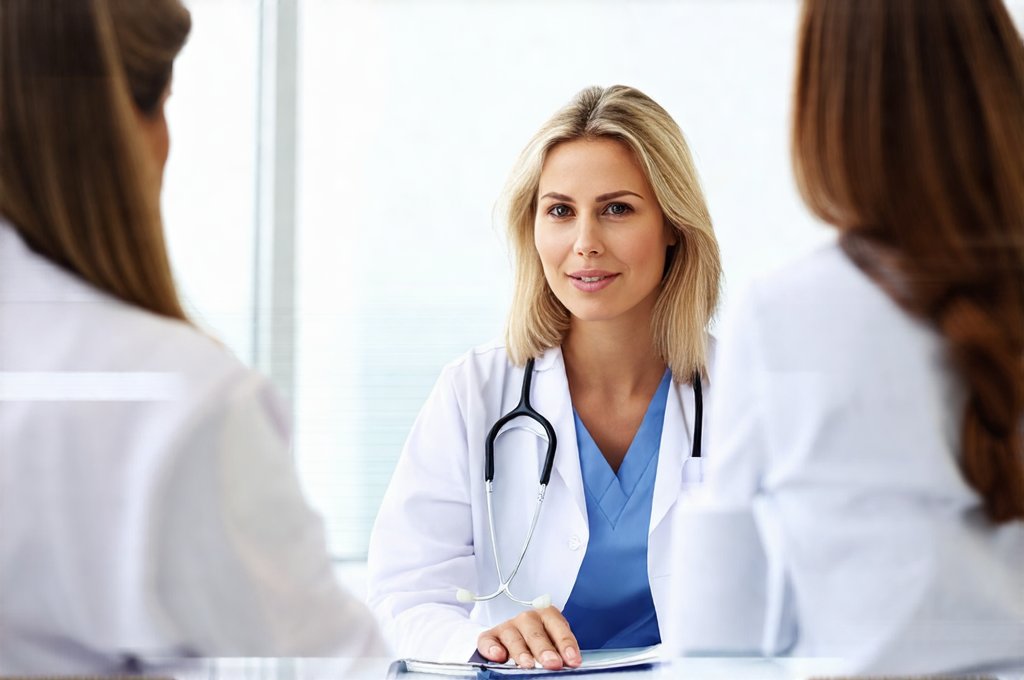Urinary tract infections (UTIs) are incredibly common, particularly among women, affecting millions annually. Often presenting with familiar symptoms like burning during urination, frequent urges to go, and cloudy urine, UTIs can sometimes manifest in less obvious ways, leading individuals to question the source of their discomfort. One frequently asked question arises from experiencing bloating or excess gas alongside potential UTI symptoms: could these digestive issues be linked? It’s a valid concern because the body is an interconnected system, and what happens in one area often influences others. Understanding this connection requires exploring how UTIs develop, where they occur within the female anatomy, and how those locations relate to the digestive system.
The complexity arises from the proximity of the urinary tract and the gastrointestinal (GI) tract. While seemingly separate systems, their anatomical closeness means inflammation or irritation in one can potentially impact the other. Furthermore, the body’s immune response to infection isn’t always localized; it often triggers systemic effects that can manifest as varied symptoms beyond the primary site of infection. This article will delve into the potential links between UTIs and digestive discomfort like gas and abdominal swelling, exploring the mechanisms at play and providing clarity for those experiencing these combined symptoms. It is essential to remember this information should not replace professional medical evaluation; always consult a healthcare provider for diagnosis and treatment.
The Anatomy & Interplay Between Urinary and Digestive Systems in Women
The female anatomy plays a significant role in why UTIs are more common in women than men, and also explains the potential for digestive symptoms. The shorter urethra in women means bacteria have a shorter distance to travel to reach the bladder. More importantly, the close proximity of the urethra to both the anus and the vagina increases the risk of bacterial contamination. When an infection takes hold, it typically begins in the urethra (urethritis) but can ascend to the bladder (cystitis) and even the kidneys (pyelonephritis). The location of these structures is key:
- The bladder sits relatively close to the intestines. Inflammation within the bladder can sometimes cause referred pain or discomfort that mimics digestive issues.
- Pelvic floor muscles support both the urinary tract and the GI tract. Inflammation or tension in these muscles, often triggered by infection and resulting inflammation, can disrupt normal bowel function.
- The hormonal fluctuations women experience throughout their menstrual cycles and during pregnancy can also affect both systems, potentially exacerbating UTI symptoms and influencing digestive processes.
This anatomical relationship isn’t merely theoretical. It explains why some women report feeling pressure or fullness in the lower abdomen alongside UTI symptoms – it’s difficult for the body to distinguish precisely where the discomfort originates when organs are so closely situated. The inflammatory response itself can impact gut motility, contributing to gas production and bloating. Beyond direct anatomical proximity, the immune system’s reaction to a UTI can also play a role in causing these secondary digestive effects.
The gut microbiome, the community of bacteria living in our intestines, is also increasingly recognized as playing a vital role in overall health, including immune function. A disrupted gut microbiome (dysbiosis) can weaken the immune response and potentially increase susceptibility to UTIs. Conversely, a UTI and its associated antibiotic treatment can further disrupt the gut microbiome, creating a vicious cycle of imbalance and digestive issues. This interconnectedness highlights why holistic approaches to health are so important.
How UTIs Can Indirectly Cause Gas & Bloating
The mechanisms linking UTIs to gas and bloating aren’t always straightforward, but several pathways can explain this phenomenon. One primary mechanism is referred pain. Pain signals from the inflamed bladder or urethra can sometimes be misinterpreted by the brain as originating in the intestines, leading to a sensation of abdominal discomfort that feels like gas pains. This isn’t “imaginary” pain; it’s a genuine misinterpretation of nerve signals due to their close proximity.
Another factor is the body’s inflammatory response. When the immune system fights off an infection, it releases various chemicals called cytokines. These cytokines aren’t just targeted at the UTI site – they circulate throughout the body and can affect gut motility (the movement of food through the digestive system). Altered motility can lead to:
- Slowed digestion: Allowing more time for bacteria in the colon to produce gas as they ferment undigested food.
- Increased intestinal permeability (“leaky gut”): Potentially leading to inflammation and discomfort.
- Changes in the gut microbiome: Disrupting the balance of beneficial bacteria and contributing to gas production.
Furthermore, the stress associated with illness – including a UTI – can also impact digestion. Stress triggers the release of cortisol, which can alter digestive function, slowing it down or speeding it up unpredictably. This disruption contributes to both bloating and changes in bowel habits. It’s important to remember that these are indirect effects; the UTI isn’t directly causing gas production within the intestines, but it’s triggering a cascade of events that lead to those symptoms.
The Role of Antibiotics & Gut Health
Antibiotics are often prescribed to treat UTIs, and while effective at killing bacteria causing the infection, they also indiscriminately kill beneficial bacteria in the gut microbiome. This disruption can significantly contribute to digestive upset, including increased gas and bloating. A healthy gut microbiome is crucial for proper digestion and nutrient absorption; when it’s disrupted, several consequences can arise:
- Reduced diversity: The loss of diverse bacterial species weakens the gut’s resilience and ability to process food effectively.
- Overgrowth of harmful bacteria: Without beneficial bacteria to keep them in check, opportunistic pathogens can flourish, leading to increased gas production and inflammation.
- Impaired digestion: Certain bacteria play a role in breaking down complex carbohydrates; their absence can result in undigested food reaching the colon, where it ferments and produces gas.
The effects of antibiotics on gut health are well documented, and many people experience digestive symptoms like diarrhea, bloating, and cramping during or after antibiotic treatment. This is why healthcare providers often recommend probiotics – supplements containing live beneficial bacteria – alongside antibiotics to help restore the gut microbiome balance. However, it’s essential to discuss probiotic use with a doctor to determine the appropriate strain and dosage.
Distinguishing UTI-Related Bloating from Other Causes
It’s crucial to differentiate between bloating caused by a UTI (or its treatment) and bloating stemming from other digestive issues. Many conditions can cause gas and abdominal swelling, making accurate diagnosis essential. Some common causes include:
- Food intolerances: Lactose intolerance or gluten sensitivity can lead to significant bloating after consuming trigger foods.
- Irritable Bowel Syndrome (IBS): A chronic digestive disorder characterized by abdominal pain, bloating, gas, diarrhea, and constipation.
- Small Intestinal Bacterial Overgrowth (SIBO): An excessive amount of bacteria in the small intestine can cause fermentation and gas production.
- Constipation: Trapped stool in the colon can lead to bloating and discomfort.
If you suspect a UTI is causing your bloating, look for accompanying symptoms like burning during urination, frequent urges to urinate, cloudy urine, pelvic pain, and fever. If these are present, seek medical attention promptly. However, if the bloating persists after UTI treatment or occurs without any urinary symptoms, it’s likely related to a different digestive issue. A healthcare professional can help determine the underlying cause through appropriate testing and evaluation. This might include stool tests to assess gut microbiome composition or dietary elimination trials to identify food sensitivities.
It’s vital not to self-diagnose or self-treat; always consult with a medical professional for accurate diagnosis and treatment plans. The information presented here is intended for general knowledge and informational purposes only, and does not constitute medical advice. Do UTIs interfere with other health aspects? Additionally, understanding if UTIs can cause mood changes is important for overall wellbeing, and recognizing potential symptoms like chest discomfort can help ensure timely medical attention.





















